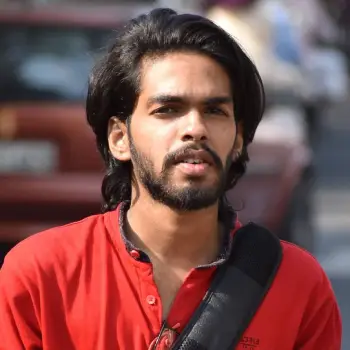Table of Contents
Makar Sankranti is one of the major festivals in Hinduism which is celebrated all over India. This year Makar Sankranti will be observed on January 14, 2026. On this day the sun moves northwards and enters Makara (Capricorn zodiac). Makar is a Sanskrit word that literally means Capricorn and Sankranti means transition, hence it is known as Makar Sankranti.
It is one of the most auspicious festivals of Hindus, characterized by different names and customs in different places. On this day, rituals like bathing and charity are considered of special importance. It is believed that the donations made on this day are of much more significance than that made on any other day.
Makar Sankranti 2026 Date – January 14
In this article readers can get a glimpse on
- Makar Sankranti Festival and Celebration
- Makar Sankranti Auspicious Time and Wishes
- Makar Sankranti Quiz
Makar Sankranti Festival 2026
1: Who was the first woman President of India?
Makar Sankranti commemorates the end of winter as well as the beginning of longer days due to the sun’s northward movement. This festival is devoted to Lord Surya or the sun god. According to the Vedas, Lord Sun is referred to as the ‘Father’ and passage of the sun determines the changing of phases and seasons of our lives.
According to Hindu mythology, the sun who is the father and Saturn, his son, do not get along well. But on Makar Sankranti, the father goes to meet his son. Both Saturn and Sun are mighty planets whose blessings are believed to allow humans to achieve great success. Because of this, on Makar Sankranti, people pray to both the sun and Saturn.
On this day, many devotees visit temples early in the morning after a ritual bath in the Ganges and pray to Surya for blessings for the whole family. According to Hindu mythology, if a person dies on Makar Sankranti, they are not reincarnated. Instead they go straight to heaven.
Free UPSKILLING Courses!
Take your first step toward mastering in-demand skills, acing interviews, and securing top-tier jobs with Entri's free upskilling courses.
Start Learning!Makar Sankranti 2026 Celebration
There are a total of twelve Sankranti in a year, out of which Makar Sankranti and Kark (Cancer) Sankranti are of great importance. On this day, worshippers take a bath in sacred rivers like Ganga, Yamuna, Godavari, Krishna, and Cauvery. It is believed that taking a dip in these rivers cleanses away the sins of the believers and bestows health, wealth and prosperous life.
It is also regarded to be a period of peace and prosperity, and several spiritual acts are performed on this day. Pilgrimage places like Haridwar, Banaras and Allahabad witness a huge rush of devotees on this auspicious day. Giving charity, chanting and tapas all have special significance on Makara Sankranti. Clothes, blankets, and even gold are given as donations at times.
Everyone tries their best to donate whatever possible. People distribute til-gud and sweets made of jaggery, rice, green gram and sesame. The sweet signifies the need for people to live together in peace and harmony and also the virtues of sharing and spreading happiness.
Kite flying is a major part of Makar Sankranti celebration. People gather in an open field and fly their kites of different designs and colors. This is a great opportunity to interact with locals and make friends. It is also considered as an auspicious day to start a new business or take up a new position at work place. In several parts of India like Uttar Pradesh, Bihar, Punjab and Tamil Nadu new crops are harvested during this time.
During Makar Sankranti there are colorful decorations all around. In some of the rural areas, children go around singing and asking for treats. People throng the melas (fairs), enjoy dancing, kite flying, bon fires and feasts. Kite flying competitions are organized at many places.
Khichdi (a dish made of rice and lentils) is savored on this day. India’s biggest fair, Ganga Sagar Mela, is held in West Bengal on Makar Sankranti. This fair is an annual gathering of pilgrims who come to perform several rituals including lighting lamps and chanting.
Let’s have a look at the rituals in some of the states:
Maharashtra – In Maharashtra, people celebrate Makara Sankranti in by exchanging til gud. The thought behind this is to forgive and forget the past ill-feelings. Women gather together and perform a special ‘Haldi-Kumkum’ ceremony.
Gujarat – In Gujarat, Makara Sankranti is celebrated for two days. The first day is Uttarayan, and the next day is Vasi-Uttarayan. The Gujarati people celebrate it with kites, a spicy curry made with winter vegetables, and sweets made with sesame, peanuts and jaggery.
Andhra Pradesh – In Andhra Pradesh, Makara Sankranti is celebrated for three days. People celebrate it with prayers, new clothes, and by inviting guests for feasts. The entrance of the house is decorated with rangoli.
Kerala – In Kerala, people visit the Sabarimala temple to see the Makara Vilakku when Makara Jyothi, the celestial star appears in the sky. The belief is that Lord Ayyappa Swami shows his presence in the form of this celestial lighting and blesses his devotees.
Karnataka – In Karnataka, women distribute delicacies made of freshly cut sugarcane, sesame seeds, jaggery, and coconut. Farmers decorate their bulls and cows in colorful costumes and jump over fire along with their bulls.
Tamil Nadu – Makara Sankranti is celebrated for four days in Tamil Nadu. Jellikattu, a contest for taming the wild bulls, is organized in certain places. The sweet rice pongal and the salted pongal are served to the cattle as a sign of gratefulness. People throw away old things from their houses which shows the importance of removing all the dirt and unwanted things from our homes and mind and making room for new ideas or things.
Even though Makar Sankranti is celebrated in different ways across the country, the spirit of the festival is the same all around the country. Farmers offer prayers to their work elements such as soil, rain, and fire for helping the harvest.
Makar Sankranti 2026 – Date and Auspicious Time
Makar Sankranti will be celebrated on Wednesday, January 14, 2026. This festival marks the Sun’s transition into the Capricorn zodiac (Makara Rashi), signaling the start of Uttarayan. The Punya Kaal and Maha Punya Kaal are considered the most powerful windows for spiritual activities, holy baths in sacred rivers, and acts of charity.
-
Punya Kaal Muhurta: 03:13 PM to 05:45 PM (Duration: 2 hours, 32 minutes)
-
Maha Punya Kaal Muhurta: 03:13 PM to 04:58 PM (Duration: 1 hour, 45 minutes)
-
Makara Sankranti Moment: 03:13 PM, Wednesday, January 14, 2026
The Different Names of Makara Sankranti
Even though Makara Sankranti is celebrated all over India, it has different names in different places. Let’s have a look at the names is is known by in different states across India.
- Assam – Magh Bihu
- Punjab – Maghi
- Himachal Pradesh – Maghi Saaji
- Jammu – Maghi Sangrand or Uttrarain or Uttarayana
- Haryana – Sakraat
- Central India – Sukarat
- Gujarat and Uttar Pradesh – Uttarayan
- Uttarakhand – Ghughuti
- Odisha, Karnataka, Maharashtra, Goa – Makara Sankrati
- Tamil Nadu – Pongal
- West Bengal – Poush Sankranti or Makara Sankranthi
- Uttar Pradesh – Khichdi Sankranti
- Andhra Pradesh and Telangana- Sankranthi
‘To be grateful for the land on which our food grows and to unite and rejoice’ is the essence of Sankranti.
Free UPSKILLING Courses!
Take your first step toward mastering in-demand skills, acing interviews, and securing top-tier jobs with Entri's free upskilling courses.
Start Learning!Happy Makar Sankranti 2026 Wishes:
-
May the warmth of the sun’s rays on Makar Sankranti fill your life with joy and prosperity!
-
Wishing you a harvest of happiness and success as you soar high like the kites in the sky this Sankranti.
-
May the sweetness of sesame and jaggery add flavours of love and unity to your Makar Sankranti celebrations.
-
As the sun begins its journey northward, may your life be filled with positivity and new beginnings. Happy Makar Sankranti!
-
Sending you warm wishes for a season filled with laughter, family gatherings, and the joy of Makar Sankranti.
-
May the vibrant colours of the kites paint your life with happiness, and the gentle breeze of Sankranti bring peace to your days.
-
On this auspicious day, may you be blessed with good health, wealth, and the strength to overcome any challenges. Happy Makar Sankranti!
-
As the sun makes its way to the northern hemisphere, may your dreams and aspirations also reach new heights. Happy Sankranti!
-
Wishing you and your loved ones a Makar Sankranti filled with the sweetness of tilgul and the warmth of festive cheer.
-
May the beauty of the kites soaring high reflect the aspirations you have for the coming year. Happy Makar Sankranti!
Makar Sankranti Quiz 2026
When is Makar Sankranti usually celebrated in India?
A) January 12
B) January 14
C) January 18
A) Aries
B) Capricorn
C) Leo
3. Which movement of the Sun is associated with Makar Sankranti?
A) Southward movement
B) Circular movement
C) Northward movement
A) Onam
B) Pongal
C) Vishu
5. Which traditional food is commonly prepared during Makar Sankranti in many parts of India?
A) Rice cakes
B) Sesame and jaggery sweets
C) Milk pudding
A) Religious festival
B) Harvest festival
C) Cultural fair
A) Maharashtra
B) Gujarat
C) Punjab
A) Boat racing
B) Kite flying
C) Mask dancing
A) Lunar calendar
B) Solar calendar
C) Agricultural calendar
Want More Engaging Questions?
Download our FREE PDF packed with insightful quiz questions to test your knowledge!
🔽 Click below to get your free copy now! 🔽
Makar Sankranti Quiz 2026 PDF
Makar Sankranti represents renewal, gratitude, and the harmony between nature and human life. It marks an important seasonal shift that influences agriculture, spirituality, and cultural practices. The festival reminds people to respect natural cycles and celebrate hard work. Its rituals emphasize positivity, charity, and togetherness. Across regions, the core message of hope remains strong.
Despite regional differences, Makar Sankranti unites people through shared values and joyful traditions. From harvest celebrations to spiritual observances, the festival reflects India’s cultural richness. It encourages communities to come together in celebration and gratitude. The day highlights the importance of balance, renewal, and generosity. Makar Sankranti continues to hold deep relevance in modern times.
Free UPSKILLING Courses!
Take your first step toward mastering in-demand skills, acing interviews, and securing top-tier jobs with Entri's free upskilling courses.
Start Learning!Frequently Asked Questions
What is Makar Sankranti and why is it celebrated?
Makar Sankranti is a traditional Indian festival marking the Sun’s transition into Capricorn. It signifies the end of winter and the beginning of longer days. The festival is closely linked to agriculture and harvest cycles. Farmers celebrate it as a time of prosperity and new beginnings. It also holds spiritual importance across many Indian communities.
On which date is Makar Sankranti usually celebrated?
Makar Sankranti is usually celebrated on January 14 every year. In some years, it may fall on January 15 due to solar movement. Unlike many Indian festivals, it follows the solar calendar. This makes the date mostly fixed annually. The consistency adds to its uniqueness among Indian festivals.
What is the religious significance of Makar Sankranti?
Makar Sankranti is considered an auspicious day in Hindu tradition. It marks the beginning of the Sun’s northward journey. This phase is believed to bring positivity and spiritual growth. Many people take holy dips in rivers on this day. Charity and prayers are also important practices.
How is Makar Sankranti celebrated in different parts of India?
Makar Sankranti is celebrated under different names across India. It is called Pongal in Tamil Nadu and Magh Bihu in Assam. In Gujarat, it is known as Uttarayan and features kite flying. Punjab celebrates it alongside Lohri festivities. Each region adds its own cultural traditions.
What foods are traditionally prepared during Makar Sankranti?
Special dishes made from sesame seeds and jaggery are common. These foods symbolize warmth and togetherness. Tilgul laddoos are popular in Maharashtra. Pongal dishes are prepared in South India. Seasonal harvest ingredients are widely used in celebrations.
Why is kite flying associated with Makar Sankranti?
Kite flying is especially popular during Makar Sankranti in western India. It marks joy and celebration of seasonal change. The activity brings families and communities together. Open skies and favorable winds support this tradition. It has also become a cultural highlight of the festival.
What is the agricultural importance of Makar Sankranti?
Makar Sankranti marks the harvest of winter crops. Farmers thank nature for good produce. It represents hope for future prosperity. Agricultural communities celebrate it with gratitude. The festival strengthens the bond between farming and culture.
Why are holy river baths taken on Makar Sankranti?
Taking holy dips is believed to cleanse sins. Rivers like the Ganga attract large gatherings. It is seen as spiritually rewarding. Many believe it brings peace and blessings. Religious rituals are performed after bathing.
How is Makar Sankranti different from other Hindu festivals?
Makar Sankranti follows the solar calendar. Most Hindu festivals are based on the lunar calendar. This makes its date more consistent each year. It also focuses on seasonal transition. Agricultural and spiritual themes blend strongly here.
What values does Makar Sankranti promote?
Makar Sankranti promotes gratitude and sharing. People exchange sweets as a symbol of harmony. Charity and helping the needy are encouraged. It highlights unity in diversity through regional celebrations. The festival spreads positivity and renewal.













